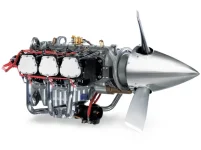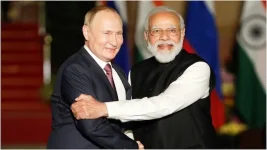- Views: 1K
- Replies: 12

Munitions India Limited (MIL), the state-owned defence manufacturer, is riding a wave of international demand with export orders totaling ₹6,000 crore secured over the next three years.
This signals India's rising profile as a global arms supplier and underscores the government's ambitious plans to strengthen the defence export sector.
"Everybody wants bombs," remarked MIL executive Gnaneshwar Tyagi, underscoring the surging global demand for MIL's products.
While declining to name specific countries for commercial reasons, Tyagi confirmed that the company's growing clientele includes emerging markets like the United Arab Emirates and Vietnam, along with an undisclosed European nation.
This diversification of MIL's buyers reflects a maturing Indian defence industry, capable of competing in varied global markets. Defence Ministry official P. S. Unni Raj sees MIL's success as a golden opportunity, both for the company's bottom line and India's strategic ambitions.
MIL's export surge comes as the Indian government pushes to boost defence exports, aiming to reduce reliance on imported arms while generating revenue and building partnerships.
This ambition dovetails with Prime Minister Narendra Modi's 'Make in India' initiative, which encourages domestic manufacturing in various domains.
Analysis
Industry analysts point out that MIL's competitive advantage lies in its ability to offer high-quality munitions at relatively lower costs compared to Western rivals.Additionally, India's neutral stance on certain geopolitical issues makes it an attractive supplier for nations seeking to avoid dependence on major Western or Russian producers.
However, MIL may face challenges in scaling up production to meet the rising export demand while maintaining domestic supplies. Some critics question the ethics of boosting arms sales while India itself faces security concerns within its neighborhood.
Conclusion
Munitions India Limited's record export deals spotlight India's emergence as a significant player in the global arms market.The economic and strategic impacts of this are likely to be far-reaching, potentially reshaping India's defence industry and its geopolitical partnerships both regionally and worldwide.



